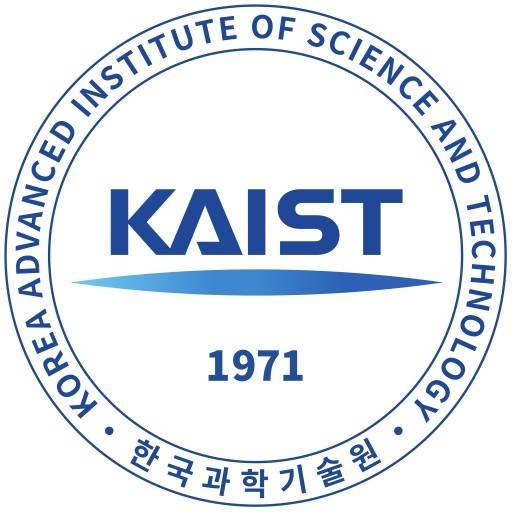Photos of university / #official_kaist
The Department of Chemical and Biomolecular Engineering at the Korea Advanced Institute of Science and Technology (KAIST) offers a comprehensive undergraduate program designed to prepare students for innovative careers in the chemical and biotechnological industries. This program emphasizes foundational principles in chemistry, physics, mathematics, and engineering, integrating these disciplines to equip students with the skills necessary to develop and optimize processes for the production of chemicals, energy, materials, and bioproducts. The curriculum combines rigorous coursework with practical laboratory experiences, fostering a deep understanding of process design, reaction engineering, thermodynamics, material science, and biomolecular processes. Students are encouraged to engage in cutting-edge research projects under the guidance of renowned faculty members, providing opportunities to contribute to advancements in sustainable energy, environmental protection, and biomanufacturing. The program aims to cultivate innovative thinking, problem-solving capabilities, and a multidisciplinary perspective, essential for addressing global challenges related to sustainability and technological development. Furthermore, students gain exposure to entrepreneurship and industry practices through partnerships with leading companies, internships, and collaborative projects. The department emphasizes a global mindset by promoting international exchanges and collaborations, preparing graduates to work effectively in diverse and multicultural environments. By the end of the program, students will be equipped with a solid theoretical foundation, practical skills, and a mindset geared toward pioneering new solutions in the chemical and biomolecular fields. Graduates of this program are well-positioned to embark on careers in research and development, process engineering, manufacturing, or pursue advanced studies in graduate or professional schools worldwide. The KAIST Chemical and Biomolecular Engineering program strives to foster innovators who can contribute to advancing technology, improving quality of life, and supporting sustainable development on a global scale.
- Molecular Engineering Laboratory
- Introduction to Chemical and Biomolecular Engineering
- Industrial Organic Chemistry
- Chemical and Biomolecular Engineering Analysis
- Molecular Thermodynamics and Energy Systems
- Biomolecular Engineering
- Biochemical Engineering
- Chemical and Biomolecular Engineering Laboratory
- Physical Chemistry for Chemical and Biomolecular Engineers Ⅰ
- Molecular Reaction Engineering
- Separation Processes
- Fluid Mechanics of Microsystems
- Heat and Molecular Transfer
- Process Simulation and Control
- Introduction to Macromolecular Engineering
- Bioinformatics
- Electrochemical Principles for Chemical and Biomolecular Engineering
- Physical Chemistry for Chemical and Biomolecular Engineers Ⅱ
- Techniques of Process & Product Design
- Chemical and Biomolecular Engineering Capstone Design Project
- Chemical and Biological Product Design Laboratory
- Nanochemical Technology
- Biorefineries for fuels and chemicals
- Bioseparation Engineering
- Introduction to Environmental Engineering
- Microelectronics Processes
- Instrumental Analysis for Chemical Engineers
- Special Topics in Chemical and Biomolecular Engineering
- Engineering Principles of Human Physiology
- Undergraduate Research in Chemical and Biomolecular Engineering
- Special Topics in Chemical and Biomolecular Engineering Ⅱ
- Special Topics in Chemical and Biomolecular Engineering Ⅲ
- Individual Study
- Seminar for Undergraduate Students
Requirements
- Application Form (original)
- Statement of Financial Resources (original)
- One Recommendation Letter (original)
- Transcript (copy)
- Standardized Official Test Report (copy)
- English Proficiency Test Report (copy)
- Passport or National ID (copy)
- Secondary/Tertiary School Profile (copy)
- Honors and Awards (copy)
- The application fee is USD 80 or KRW 80,000. Payment can be made by credit card or bank transfer after writing application form online. Additional charges (i.e. bank charges) should be covered by the candidates. Please note that application fee is non-refundable and you cannot modify application form once you pay the application fee.
Scholarships
- KAIST International Student Scholarship
- Korean Government Scholarship (KGSP)
The Department of Chemical and Biomolecular Engineering at Korea Advanced Institute of Science and Technology (KAIST) is a leading program dedicated to advancing knowledge and skills in the field of chemical and biomolecular engineering. The curriculum is designed to provide students with a comprehensive understanding of chemical processes, reaction engineering, materials science, and biomolecular systems. Students gain hands-on experience through laboratory work, research projects, and industry collaborations, preparing them for careers in academia, industry, and research institutions. The program emphasizes interdisciplinary approaches, integrating chemical engineering principles with emerging fields like nanotechnology, synthetic biology, and sustainable energy solutions. Faculty members are renowned experts in their fields, offering mentorship and fostering innovative research endeavors. Students can specialize in areas such as process systems engineering, advanced materials, biotechnology, and environmental engineering. The university provides state-of-the-art research facilities, including laboratories equipped for nanofabrication, biochemical analysis, and process simulation. The program also encourages international collaboration and hosts various seminars, workshops, and conferences to promote academic exchange. Graduates are highly sought after in the global job market, with competencies that include process optimization, product development, and environmental management. Overall, KAIST’s Chemical and Biomolecular Engineering program aims to cultivate future leaders who will contribute to technological advancement and sustainable development worldwide, fostering a vibrant academic and research community committed to innovation and societal impact.

